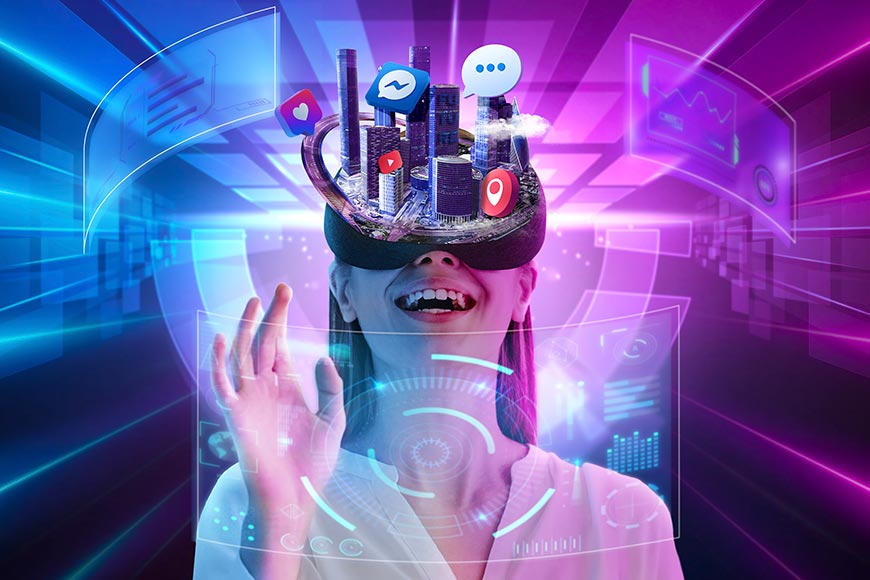
Let’s Talk About the Metaverse
The metaverse is a concept that has been popularized in science fiction literature, where it refers to a virtual world that is fully immersive and interactive. It is often imagined as a shared, online space where people can interact with each other and digital objects in real-time, much like in the real world. In this sense, it is an extension of the internet where people can engage in a wide range of activities, such as socializing, playing games, learning, working, and shopping. The metaverse is expected to be a platform for a wide range of activities, including social interaction, entertainment, education, and commerce.
One of the key features of the metaverse is that it will be user-generated, meaning that users will be able to create and customize their own virtual environments and experiences. This could include creating virtual homes, building virtual cities, and designing virtual landscapes. Users will also be able to create and customize their own avatars, which will serve as their digital representations in the metaverse.
The metaverse is also expected to be a platform for a wide range of digital media, including virtual reality, augmented reality, and other forms of digital media. This will allow users to experience a wide range of immersive environments and interact with digital objects in new and exciting ways.
The concept of the metaverse has been increasingly discussed in recent years, as technology has advanced and made such a world more feasible. Virtual reality and augmented reality technology, as well as the development of 5G networks, are seen as critical enablers of the metaverse.
It is important to note that, while the concept of the metaverse is still largely theoretical and it is uncertain when, or if, such a world will come to fruition, several companies and organizations are currently working to create a metaverse-like experience.
Metaverse and the Payments Industry
The metaverse is expected to have a significant impact on the payments industry. Here are a few ways in which this might happen:
- Virtual currencies: The metaverse is likely to rely heavily on virtual currencies, which will be used to purchase virtual goods and services within the virtual world. This could lead to the development of new digital payment methods and the emergence of new digital currencies.
- Virtual commerce: As the metaverse becomes more immersive and interactive, it is likely to become an important platform for commerce. This could include virtual marketplaces where users can buy and sell virtual goods and services, as well as the ability for users to make payments for real-world goods and services within the virtual world.
- Digital Identity: A metaverse would require individuals to have a digital identity that could be used to verify their identity and enable them to access the virtual world. This would create new opportunities for digital identity verification and authentication services.
- Financial Services: The metaverse could also provide new opportunities for financial services, such as virtual banking and virtual insurance.
- Security: With the increasing volume of transactions taking place within the metaverse, the need for secure and reliable payment systems will be crucial. This will require the development of new security protocols and technologies to protect against fraud and cyber-attacks.
Overall, the metaverse has the potential to revolutionize the payments industry by creating new digital payment methods, enabling new forms of commerce, and creating new opportunities for digital identity verification, financial services, and security.

